MSA Projects Across the Decade
As MarketShare Associates celebrates over a decade of development impact, we’ve been honored to collaborate with various clients and partners across the globe. Here are a few pivotal projects that have shaped our journey and continue to influence what’s next.
Keep a look out for our new project database coming soon!
Feed the Future Market Systems and Partnerships with DAI
Global | 2020-2026
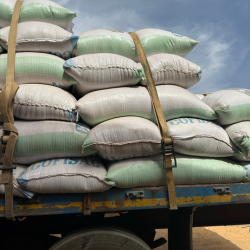 The USAID Feed the Future Market Systems and Partnerships (MSP) Activity is a global learning mechanism for advancing learning and good practice in market systems development (MSD) and private sector engagement (PSE) within USAID, its partners, and beyond. MSP sought to improve the effectiveness of Feed the Future, USAID, and other USG programs, leading to sustained development outcomes at scale.
The USAID Feed the Future Market Systems and Partnerships (MSP) Activity is a global learning mechanism for advancing learning and good practice in market systems development (MSD) and private sector engagement (PSE) within USAID, its partners, and beyond. MSP sought to improve the effectiveness of Feed the Future, USAID, and other USG programs, leading to sustained development outcomes at scale.
MSA implements MSP’s measurement, communications, and learning strategy, providing ad hoc inputs to the work of other learning streams. MSA also leads MSP’s monitoring and evaluation (M&E), collaborating, learning, and adapting (CLA), and social inclusion learning tracks.
Feed the Future Rwanda Hinga Wunguke with Cultivating New Frontiers in Agriculture (CNFA)
Rwanda | 2022-2027
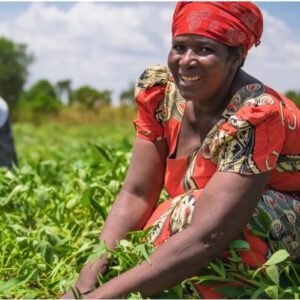 The USAID Rwanda Hinga Wunguke Activity is a $29.75-million activity implemented by CNFA in collaboration with MarketShare Associates primarily in the Feed the Future (FTF) Zone of Influence (ZOI) in Rwanda. The overall objective of Hinga Wunguke is to increase incomes and improve nutritional outcomes, by sustainably increasing agricultural productivity, and strengthen domestic consumption and markets for high-value and nutritious agricultural products.
The USAID Rwanda Hinga Wunguke Activity is a $29.75-million activity implemented by CNFA in collaboration with MarketShare Associates primarily in the Feed the Future (FTF) Zone of Influence (ZOI) in Rwanda. The overall objective of Hinga Wunguke is to increase incomes and improve nutritional outcomes, by sustainably increasing agricultural productivity, and strengthen domestic consumption and markets for high-value and nutritious agricultural products.
MSA supports the integration of market systems development (MSD) approaches into the Hinga Wunguke Activity, incorporating behavioral and sociocultural analysis into research and work planning. This includes assisting the Activity team with tools such as Behavioral Analysis and Norms Diagnostic (BAND), Social Network Analysis (SNA), and Fast Cycle Learning to understand economic behavior, map relationships, and track performance.
Feed the Future Nepal Agricultural Inputs Activity with Winrock International
Nepal | 2023-2028
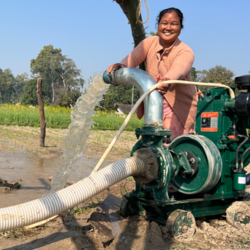 The USAID Feed the Future Nepal Agricultural Inputs Activity aims to increase the availability, accessibility, and use of agricultural inputs and technology to improve agricultural productivity in Nepal. It focuses on four critical agricultural inputs – seed, fertilizer, irrigation, and agricultural mechanization – in 16 districts from the Sudurpaschim, Karnali, Lumbini, Bagmati, and Madhesh provinces.
The USAID Feed the Future Nepal Agricultural Inputs Activity aims to increase the availability, accessibility, and use of agricultural inputs and technology to improve agricultural productivity in Nepal. It focuses on four critical agricultural inputs – seed, fertilizer, irrigation, and agricultural mechanization – in 16 districts from the Sudurpaschim, Karnali, Lumbini, Bagmati, and Madhesh provinces.
MSA leads gender equality and social inclusion (GESI) efforts on the Activity to ensure that GESI practices are embedded throughout systems change measurement across the project.
Jordan Water Efficiency and Conservation with TetraTech
Jordan | 2022-2027
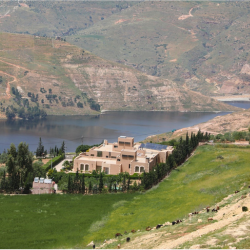 The WEC Activity contributes to USAID/Jordan’s Country Development Cooperation Strategy’s (CDC: 2020-2025) five-year goals of supporting Jordan to advance its stability, prosperity, and self-reliance by spurring private sector-led economic growth, improving water security, strengthening accountable governance, fostering a healthy, well-educated population, and enhancing the agency and leadership of women and youth.
The WEC Activity contributes to USAID/Jordan’s Country Development Cooperation Strategy’s (CDC: 2020-2025) five-year goals of supporting Jordan to advance its stability, prosperity, and self-reliance by spurring private sector-led economic growth, improving water security, strengthening accountable governance, fostering a healthy, well-educated population, and enhancing the agency and leadership of women and youth.
MSA plays a multifaceted role, conducting market assessments, supporting capacity building, and developing business models for water conservation technologies. Moreover, MSA developed a cost-benefit analysis tool to assess the viability of water-saving technologies in Jordan, aiding decision-making for support by the WEC Activity.
Expanding the DCED Standard with DCED and IFC
UK, Canada, USA and Netherlands | 2013-2014
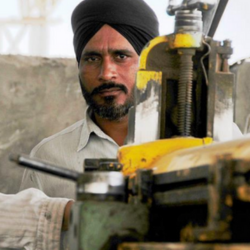 The Donor Committee for Enterprise Development (DCED) was a forum overseen by the International Finance Corporation that consists of bilateral and multilateral funders as well as foundations who fund economic development. In 2009, the DCED developed a cutting-edge quality standard for the monitoring of private sector development programming called the DCED Standard for Results Measurement. The DCED commissioned a consultancy to support the global roll-out of the DCED Standard.
The Donor Committee for Enterprise Development (DCED) was a forum overseen by the International Finance Corporation that consists of bilateral and multilateral funders as well as foundations who fund economic development. In 2009, the DCED developed a cutting-edge quality standard for the monitoring of private sector development programming called the DCED Standard for Results Measurement. The DCED commissioned a consultancy to support the global roll-out of the DCED Standard.
MSA worked with the DCED Secretariat to address three key pain points inhibiting broader adoption of the DCED Standard. MSA supported the DCED to analyze potential new markets and select priority ones, developed advanced training materials to increase potential users’ understanding (including in French and Spanish), and conducted research on three key learning questions that the Secretariat had around the application of the DCED Standard.
Leveraging Economic Opportunities with ACDI/VOCA
Global | 2016
 Leveraging Economic Opportunities (LEO) was USAID’s three-year research initiative to better understand how to best spark economic growth.
Leveraging Economic Opportunities (LEO) was USAID’s three-year research initiative to better understand how to best spark economic growth.
MSA led LEO’s research on the policy constraints to private sector investment. This thematic research analyzed the role of trade institutions, trade policy reforms, non-tariff barriers, market-oriented infrastructure, and advocacy platforms on private sector investment and the export capability of businesses and sectors.
Arab Women’s Enterprise Fund with DAI
Egypt, Jordan, and Palestine | 2015-2020
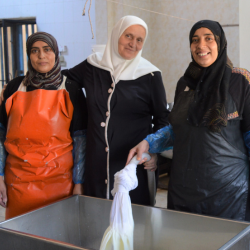 The Arab Women’s Enterprise Fund (AWEF) was a five-year program aimed at increasing women’s participation in the economy by fully incorporating gender dynamics into a systems-based approach. AWEF was guided by five key principles: empowerment, systemic change, learning and innovation, adaptability, and understanding political economy/stakeholder dynamics.
The Arab Women’s Enterprise Fund (AWEF) was a five-year program aimed at increasing women’s participation in the economy by fully incorporating gender dynamics into a systems-based approach. AWEF was guided by five key principles: empowerment, systemic change, learning and innovation, adaptability, and understanding political economy/stakeholder dynamics.
MSA was a critical partner in the AWEF consortium, responsible for setting up and implementing its results measurement systems, providing technical assistance on promoting women’s economic empowerment while applying a market systems approach, and leading the “learning hub” that designed and carried out select research studies to drive project improvement and external learning.
Feed the Future Inova Activity with DAI
Mozambique | 2017-2022
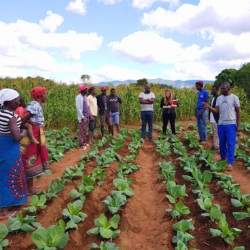 Inova was a $21-million, USAID-funded (and former Feed the Future) initiative operating in Mozambique. Started under Feed the Future, Inova’s objectives were to improve the competitiveness of targeted agricultural sub-sectors, strengthen target agricultural value chains, and improving the livelihoods of tens of thousands of smallholder farmers spread across multiple provinces of Mozambique.
Inova was a $21-million, USAID-funded (and former Feed the Future) initiative operating in Mozambique. Started under Feed the Future, Inova’s objectives were to improve the competitiveness of targeted agricultural sub-sectors, strengthen target agricultural value chains, and improving the livelihoods of tens of thousands of smallholder farmers spread across multiple provinces of Mozambique.
MSA, as a subcontractor to DAI, implemented the monitoring and evaluation platform and gender programming. Inova took a systems approach in which MSA designed and implemented the results measurement system in alignment with the DCED Standard. This included designing the program’s adaptive management strategy; creating the Monitoring, Evaluation and Learning (MEL) system; identifying performance indicators; designing the results chains to assess the progress of systemic changes; and incorporating gender-based measurement indicators and strategies.
Feed the Future Rwanda Orora Wihaze with Land O’Lakes Venture37
Rwanda | 2019-2024
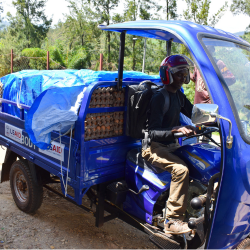 The USAID Feed the Future Rwanda Orora Wihaze Activity, a $15-million program, utilized a market-systems approach to facilitate the introduction of new practices that will contribute to the goal of increasing the consumption of animal-sourced foods in Rwanda from selected value chains, including fish, pigs, poultry, and shoats (goats and sheep).
The USAID Feed the Future Rwanda Orora Wihaze Activity, a $15-million program, utilized a market-systems approach to facilitate the introduction of new practices that will contribute to the goal of increasing the consumption of animal-sourced foods in Rwanda from selected value chains, including fish, pigs, poultry, and shoats (goats and sheep).
MSA played a crucial role in enhancing Orora Wihaze programming by incorporating advanced Monitoring, Evaluation, and Learning (MEL) and Collaborating, Learning, and Adapting (CLA) approaches. This involved providing training, facilitating strategy development, conducting analyses, and participating in routine reviews to ensure the project’s success and adaptability to changing market conditions.
Inclusive Finance CGAP Co-Lab Facilitation with the Bill and Melinda Gates Foundation
Turkey, Egypt, Rwanda, Bangladesh, Tunisia, India, Zambia, Malawi | 2018-2022
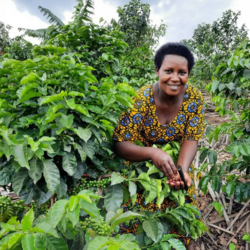 CGAP funded the development of a toolkit on inclusive finance consumer insight studies that incorporate systems thinking, behavior change identification, and social norms, and tests the process of the toolkit through a “Co-Lab,” which engaged seven unique donors and countries to build their capacity on consumer insight studies, social norms, and testing the toolkit.
CGAP funded the development of a toolkit on inclusive finance consumer insight studies that incorporate systems thinking, behavior change identification, and social norms, and tests the process of the toolkit through a “Co-Lab,” which engaged seven unique donors and countries to build their capacity on consumer insight studies, social norms, and testing the toolkit.
MSA led the design of a toolkit and supported the capacity development and rollout of a CoLab on Inclusive Finance Consumer Studies and Social Norms. The toolkit was tested in eight different countries through the CoLab. The field research informed operational and policy recommendations on how to address socio-cultural and socio-economic issues influencing women’s use of conventional and digital financial products.
As we reflect on these transformative projects, we are inspired by the collective impact we’ve achieved. With each endeavor, we reaffirm our commitment to driving sustainable development and actionable insights towards shaping a brighter future for communities worldwide.


